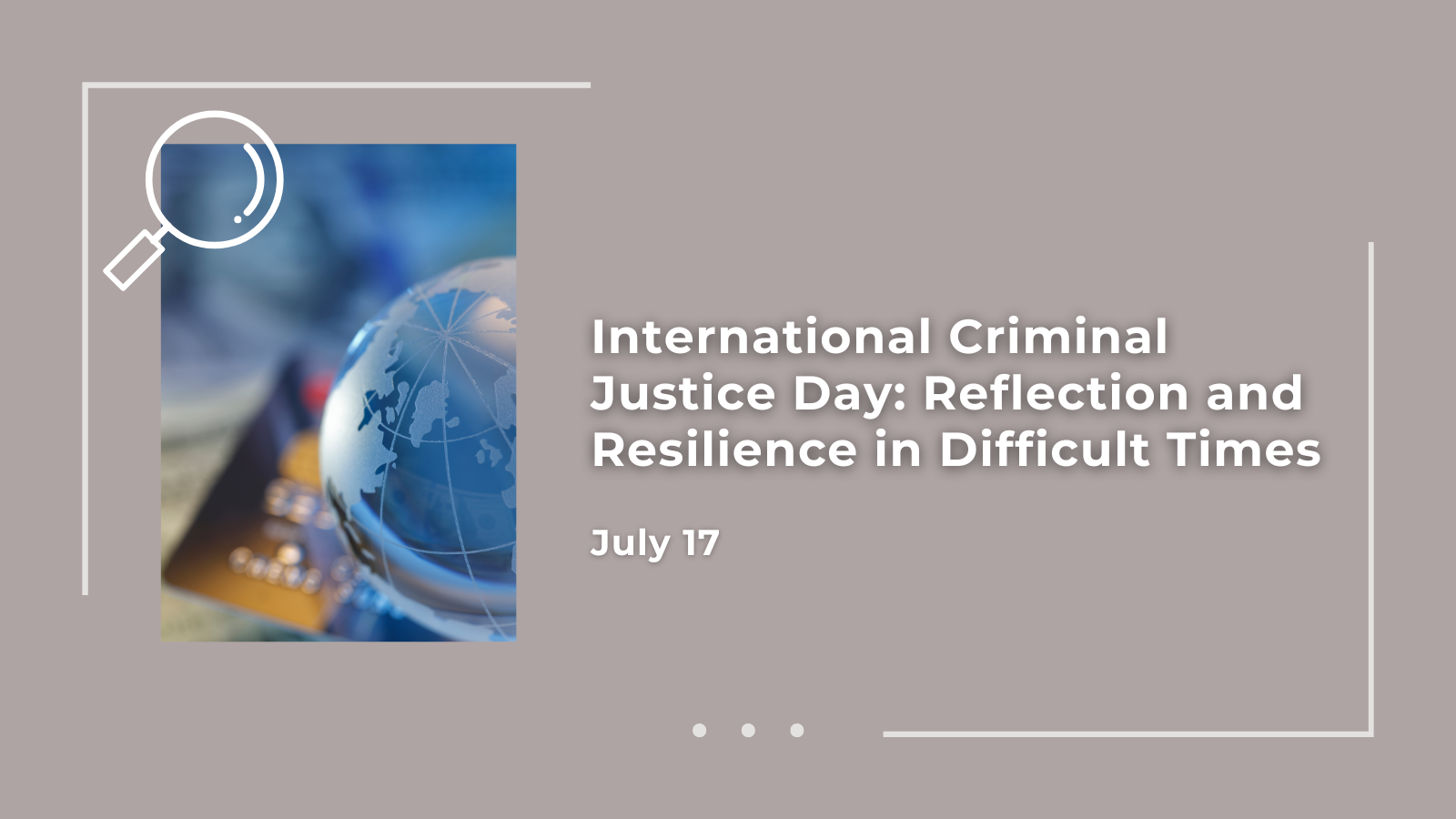
International Criminal Justice Day: Reflection and Resistance in Difficult Times
On this day, July 17, 1998, the Statute of the International Criminal Court (the “ICC”) was adopted in Rome by the international community and entered into force on July 1, 2002. International criminal justice was born with the intention of ensuring that no one is above the law, especially when it comes to heinous crimes such as genocide, war crimes, crimes against humanity and, more recently, the crime of aggression.
In our history we always find references and passages that assault the collective conscience because of the cruelty and barbarity of the facts. The tragic thing about our history is that the commission of the most serious crimes against humanity always went hand in hand with the shadow of impunity, relegating the victims to the background, denying them reparation, truth and justice.
After the atrocities perpetrated during the Second World War, the Nuremberg and Tokyo trials, and the establishment over the years of other ad hoc International Criminal Tribunals such as the International Criminal Tribunal for the former Yugoslavia or the Criminal Tribunal for Rwanda in the 1990s, the need and urgency of setting up a permanent and universal International Criminal Tribunal to lead the fight against impunity crystallized in the international community.
The configuration of the ICC as an International Criminal Court consolidated a new maxim that had been developed during the 20th century in International Criminal Law and International Humanitarian Law: the criminal responsibility of the individual as a subject of international law. It opened up the possibility for victims to become parties to the proceedings, to exercise their right to effective judicial protection and to obtain reparations and justice in the international sphere.
Such progress in this area was made possible by the determination and conviction of the international community, which, in the words of the ICC Statute, has always borne in mind that, in this century, millions of children, women and men have been victims of atrocities that defy imagination and deeply shock the conscience of humanity.
However, like other institutions of public international law, international criminal justice is no stranger to diplomatic pressures and the economic interests of other States that hinder its functioning; and this, in the case of the ICC, is coupled with the impossibility of extending its jurisdiction and applicability beyond those who voluntarily bind themselves to compliance by ratifying the Statute. These challenges, of a political, legal and practical nature, reflect the complexity of the international environment and the tensions that exist between national sovereignty and universal justice.
One of the most visible problems is the growing reluctance of some states to cooperate with the ICC. Countries that have ratified the Rome Statute – the legal basis of the ICC – have withdrawn or expressed their rejection of the Court’s jurisdiction. A recent example is Hungary’s decision to leave the ICC, joining other states that openly defy international justice. Added to this is the issuance by Donald Trump as President of the United States of an executive order authorizing sanctions against the ICC and its prosecutor, Karim Khan. The order stated that any non-US person or organization could be sanctioned if it directly participates in any ICC initiative to investigate, arrest, detain or prosecute a protected person without the consent of the country of which that person is a national.
The same is true of national instruments, which, after having made powerful states uncomfortable, have been the subject of various legislative reforms that have stifled their operability, once again jeopardizing the international criminal justice system. As a result, there is less and less chance of effective justice, which generates frustration among victims and erodes the perception of its authority.
Furthermore, the Court’s own operational capacity faces budgetary constraints, logistical complexities and obstacles in the field, which slow down or even paralyze investigations. These difficulties not only affect the concrete work of the Court, but also generate a greater and more dangerous risk: the loss of confidence in international criminal justice institutions.
When victims, affected communities and international public opinion doubt the impartiality, effectiveness or real will of international justice, a vacuum opens up that can be filled by impunity, authoritarianism and oblivion. This in turn feeds a vicious circle where lack of justice generates more violence, making law enforcement even more difficult.
Moreover, the loss of confidence can foster skepticism about the values and principles that international criminal justice stands for: respect for human dignity, an end to impunity and the defense of international humanitarian law and human rights.
This is why it is worth asking whether, with the atrocities that are once again drowning the world, with more than enough evidence to proclaim that a genocide is being committed that is sold in installments with every news broadcast, the day will once again come when the instruments that built the system of International Criminal Justice will defy constraints that call into question its operability.
On a day like today, July 17, 1998, the adoption of the Court’s Statute was welcomed with hope. It was conceived as an International Court with a universal vocation, based on the principles of reparation, truth and justice; that would judge the most serious crimes against humanity without distinction or double standards and in which the States Parties would ensure their obligations to investigate and cooperate in the prosecution of such crimes.
Today, in commemoration of that day, aware of the present challenges and difficulties; remembering the duties of every state; and convinced of the urgency, once again, of the fight against impunity, we make a call to continue working for International Criminal Justice, so that once again, someday, the echo of those laudable words wielded by Argentina in relation to the commission of the most serious crimes against humanity will resound in our consciences, so that they will never be repeated, “never again”.
Lorena Ruiz, collaborator of FIBGAR



